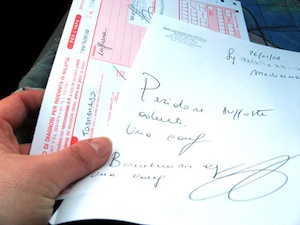Where do you keep your medical records? Many people don’t keep track of them while others just assume their doctor has them. Of course, your doctor should have a copy of your medical records to provide you the best treatment. But you need to keep and track them, too.
You should have easy access to your medical records as they are needed when you get sick, move to a new town, change doctors, while you’re traveling, or in the event of an emergency. In this age of technology, storing them online in an organized manner is the best way to maintain them. It allows you to access them anytime and from anywhere in the world. This also ensures that you don’t have to repeat tests unnecessarily because you don’t have a copy of a test that was done 6 months ago. When a medical emergency strikes, time is extremely important. Having instant access to your medical records can be of immense help.
The best way to build your medical history is to start keeping an electronic copy of everything going forward while collecting old records as you can find them or get them from your doctor. Also, try to spend some time in building a record of your general family medical history going back a generation.
Here is the list of important medical records you should store safely:
- Your personal information. It includes your ID proof and contact information of your primary doctor.
- Insurance card along with any related phone numbers and organ donor card, if any.
- Immunization record including the childhood and adulthood immunizations.
- Current medications. Keep a list of all the medicines you are taking including prescribed or OTC medicines, supplements, vitamins and minerals. You should also keep a list of medications you have taken in the past.
- A list of your chronic diseases such as asthma, high blood pressure, arthritis and diabetes.
- A list of past health problems. That includes any major accident, trauma, PTSD, drug or alcohol related issues. Also collect the documents related to any major surgeries you’ve had.
- Family medical history. Has anybody in your family suffered a major medical problem such as stroke, allergies, heart disease, cancer, diabetes, etc. in the past? Include that in your medical records.
- Maintain the records of health check-ups, home health nursing reports, emergency department visits, hospital discharge summaries and physical therapy reports.
Safe And Accessible Storage
Up-to-date medical records at the time of an emergency can be a lifesaver. The surgeon or medical staff may require these documents instantly. So, keeping them safe and easily accessible is an important step in being prepared to tackle an emergency. Also, let someone you really trust (maybe your spouse or a close buddy) know where you have kept them.
An easy and secure way to keep your medical records is to store them online using Finovera. North Carolina-based John Rugh uses Finovera to store his own and his family’s medical records. John also keeps some important medical papers related to his aging parents in a separate folder on the Website. He says storing them online helped him a lot when he moved to Charlotte from Austin, Texas earlier this year. He had all the medical documents when his aging mother needed to visit the doctor.
Getting started with Finovera is quick and easy. Get a scanned copy of your medical records and register on Finovera. Now you can create a new folder and upload your medical records in the File Cabinet. Finovera provides bank-level security to ensure that your medical records remain safe.
You can access and download them anytime you want from anywhere on the globe.
How do you maintain your medical records? Use Finovera to keep them safe and avoid panic in times of a medical emergency.

